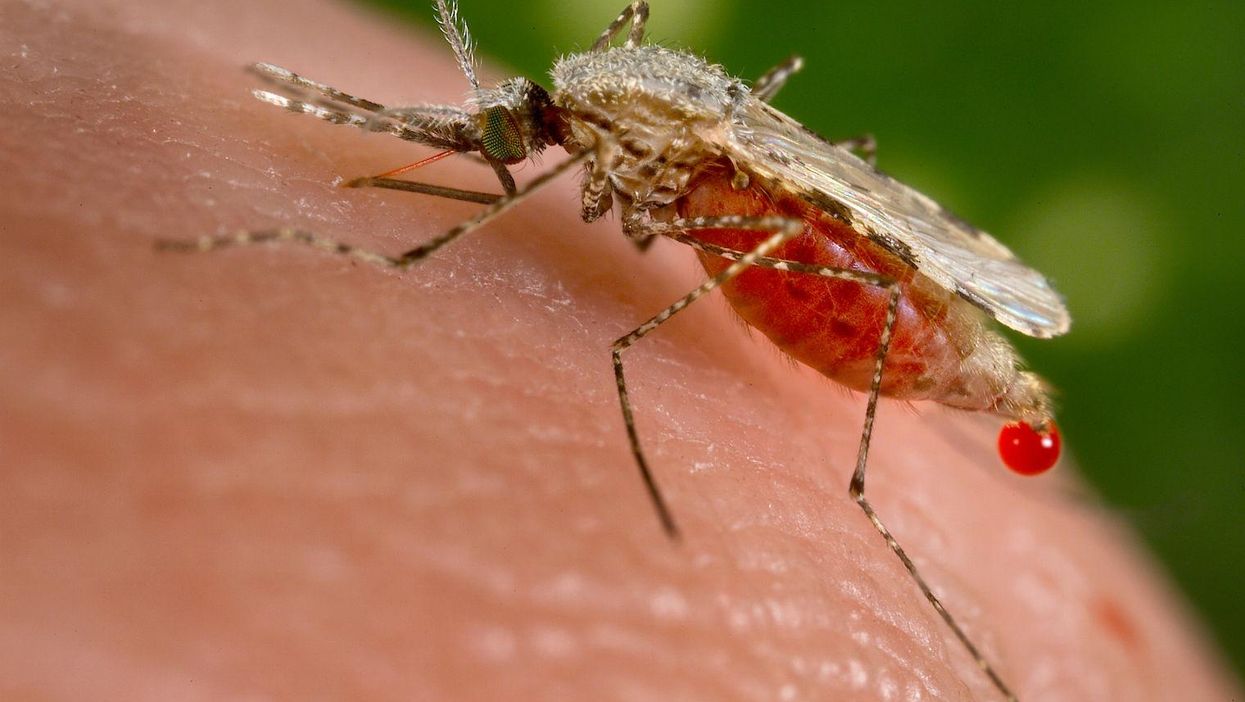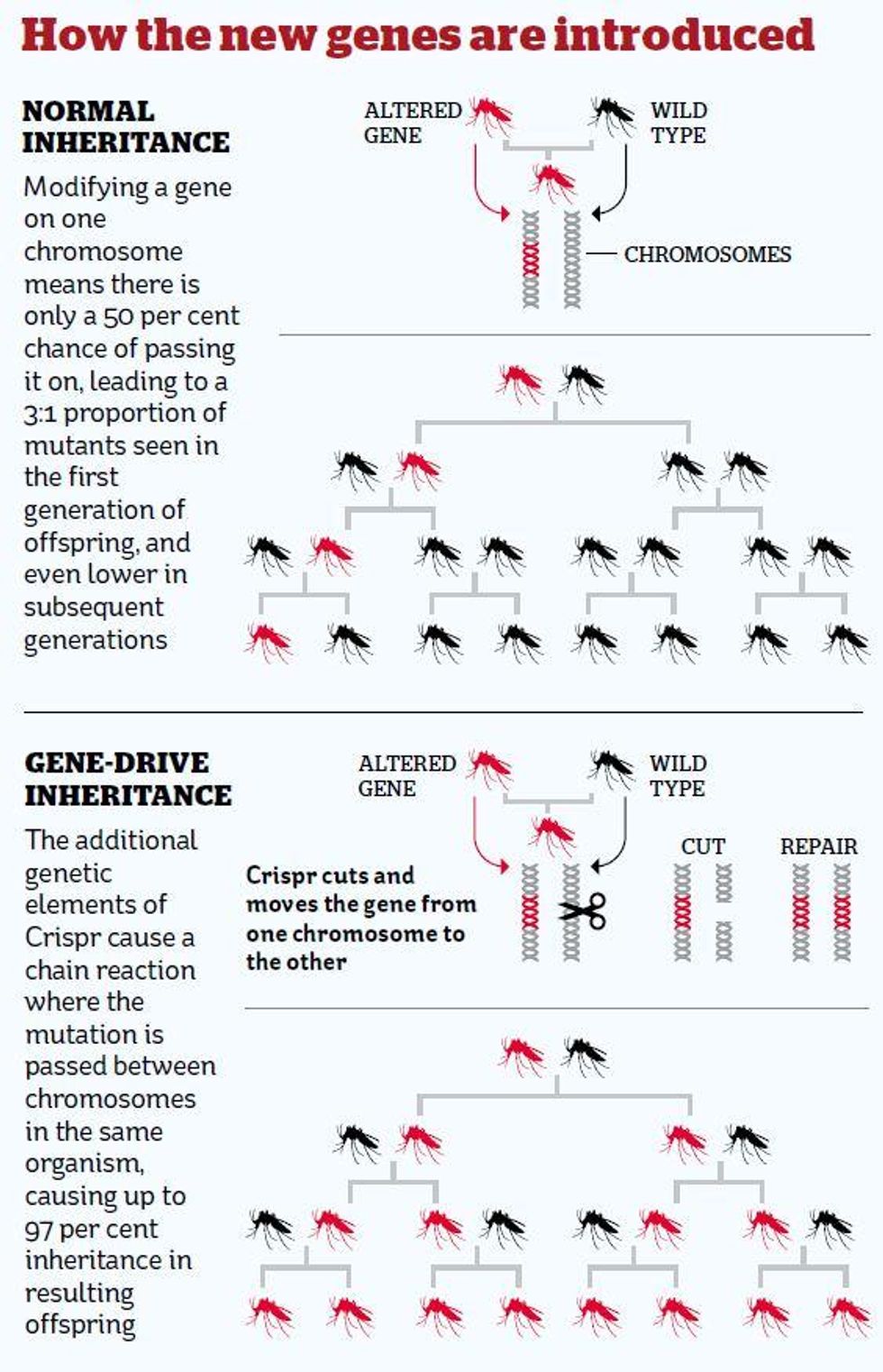
(Picture: CDC/Handout
A new way of creating genetically modified insects could wipe out many mosquito-borne diseases such as malaria within a few years.
Researchers have devised a method of bypassing a fundamental barrier to the rapid spread of genes within a population and believe it could be used to spread malaria-resistant genes in mosquitoes.
It works because the genetically modified DNA includes a “cassette” of other genetic elements that makes sure the intended mutation is passed from one chromosome to another within the same organism in what the scientists have called a “mutagenic chain reaction” (MCR).
This ensures that almost all offspring born as a result of the genetically modified mosquito mating with wild mosquitoes are born with the ability to pass on the mutated gene instead of the usual one-in-three proportion dictated by classical genetics.
However, scientists have also warned that it could also unleash potentially devastating unintended consequences by rapidly spreading harmful genes in the wild.
More: Who do you think you are? This map shows Britain's genetic history
Top 100
The Conversation (0)














